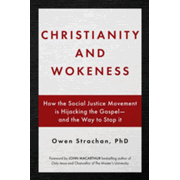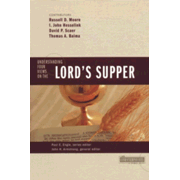OUR READING for this Twelfth Sunday after Pentecost comes
from the Gospel According to Saint Luke. Herein our Lord taught us about healing
and forming priorities as Christians.
One Sabbath, when he (Jesus)
went to dine at the house of a ruler who belonged to the Pharisees, they were
watching him. And behold, there was a man before him who had dropsy. And Jesus
spoke to the lawyers and Pharisees, saying, "Is it lawful to heal on the Sabbath,
or not?"
But they were silent. Then he took him and
healed him, and let him go.
And he said to them, "Which of you,
having a son or an ox that has fallen into a well, will not immediately pull
him out on a Sabbath day?"
And they could not reply to this.
Now he told a parable to those who were
invited, when he marked how they chose the places of honor.., saying to them,
"When you are invited by any one to a marriage feast, do not sit down in a
place of honor, lest a more eminent man than you be invited by him; and he who
invited you both will come and say to you, 'Give place to this man,' and then
you will begin with shame to take the lowest place.
But when you are invited, go and sit in the
lowest place, so that when your host comes he may say to you, 'Friend, go up
higher'; then you will be honored in the presence of all who sit at table with
you. For every one who exalts himself will be humbled, and he who humbles
himself will be exalted."
He said also to the man who had invited him,
"When you give a dinner or a banquet, do not invite your friends or your
brothers or your kinsmen or rich neighbors, lest they also invite you in
return, and you be repaid. But when you give a feast, invite the poor, the
maimed, the lame, the blind, and you will be blessed, because they cannot repay
you. You will be repaid at the resurrection of the just." (Luke 14:1-14)
 |
Christianity and Wokeness By Owen Strachan |
Who? Where? When?
What?
Our lesson this week follows along the same lines of healing
that we studied for last week. It has parallels in Matthew 12:9-14, Mark 3:1-6,
Luke 6:6-11, and 13:10-17.
However, in somewhat different fashion, the healing described here took place
not in a synagogue as the others revealed, but happened as many persons
gathered in the house of a ruler. The guest gathered to see and to hear.., and presumably
meet Jesus.
Jesus, who was the
guest of honor, did something in the home which was over against the host’s
tradition. He willed to heal a man who had dropsy, and he did this act on the
Sabbath. Therefore from the text, we who now read this account may deduce that
for Jesus, the where or when of healing was not at issue. The issue was demonstratively
more that the healing took place. Sinful man’s priorities often get askew. As
he stated… “Sabbath was made for man, not man for the Sabbath.” (Mark 2:27)
Since the person he
healed is similarly not named, as in other texts, but just his walking illness was
described.., we may say that his quality of faith at the time was not at issue.
All we can surmise is that he was likely influential and a Pharisee. More so, we
may assume that God saw the man kindly as one of his own. We may conclude then from
this writing in Luke that it pleased God to heal the subject’s gait… regardless of the man’s wealth, position or faith expression. Today, we might
rightly ask of the Spirit whether the man and his healing was beheld at center
stage primarily as an entry figure for the parable told afterward. The parable that
follows the healing was told in comment to answer the familiar social climbing of
the guests. For Jesus, the seating
at prominent human events sinfully seems always at issue. This is so even today. One who
does not think so, simply has to sit in someone else’s pew in a church.
 |
Mere Evangelism: 10 Insights From C.S. Lewis to Help You Share Your Faith By Randy Newman |
As Jesus
relates to us, however, is that our seating arrangements come from an assumptive human
nature denounced in the Hebrew scripture. Instead, he promoted taking a
lowly position. In the
telling of his story, we see that a Pharisaic ruler’s attitude was directly addressed.
Though a ruler and Pharisee, Jesus said the person who is of high station is invited…and given the opportunity…
to minister to the lowly. He said that a
person who assumes a lowly nature may more easily care for those who are
afflicted. The act, however, is not done for earthly reward… for the
lowly cannot repay. Jesus stated clearly that payment for this goodness shall be forthcoming at
the Resurrection.
It was this last,
very prophetic statement of our text that rubbed the hardest upon our Lord’s
audience. The telling likely caused the most tumult amid the hearers… for you
see.., the Pharisees did not believe being lowly in riches was a merit. They also did not
envision the Resurrection. Therefore in one
gathering, by the healing of an unknown man without inquiring of the subject’s
station… and then telling a parable about the occasion... Jesus had turned the
traditions in the world of the haughty persons upside down. All they had invested to be seated prominently that evening was challenged. The lowly had been
cared for and the high were being brought low. True reward was said to be beyond
their reach.
 |
Theology of the Cross for the 21st Century |
Why Love Poured Out?
Consequently, within revealing
this lesson in his gospel, Luke taught the readers of his own day and also we
who read
this record, that God challenges us concerning our financial and social
positions. God does not use worldly scales when measuring us. In doing
mercy, God simply does miraculously what God will do.
We are called to ask then as
Sabbath rolls into the modern work week... the same question that the infant
churches within Luke's days may have rightly asked, “What shall we who are the
chosen and forgiven do in lowly response?”
Surely we who have been spared
the penalty of our sinfulness and now working from that renewed, holy place
of existence, are
called to respond. I offer to you that we are to praise Him and recognize that
we are sent by our Lord out into the world to both feed and heal others.
We are not to stand high
and mighty, separate and above those others for whom God cares. We are
to do as our
Lord has done and empower them from alongside.
As well, we need to remember
here that according to scripture, Jesus was participating in a feast on
that Sabbath, which in the days to come would be considered as
a divine table likened to a marriage feast held for the Bridegroom of
the Church. We today in the Church can hold to the thought that we
are subsequently gathered at the
same dinner. Indeed, Jesus comes
to be with us as well.
You see, Jesus teaches us humility while we are participating in the Sacrament. The
Feast transforms us through God’s love. Therefore a great healing takes place for us.
The festive and holy occasion properly observed should affect us so much that any random un-named someone can walk out of
the dinner considering themselves as healed, standing straight and upright before God.
Similar to those
Lukan communities then, we today may look back on this instance of healing knowing surely that
this is why our God came to us as lowly. As spoken of the prophet, we find that this is why he lovingly
took stripes of the whip for our healing. For it was foretold…
For thus says the
high and lofty One who inhabits eternity, whose name is Holy: "I dwell in
the high and holy place, and also with him who is of a contrite and humble
spirit, to revive the spirit of the humble, and to revive the heart of the
contrite. (Isaiah 57:15)
Certainly our Father’s
divine and abundant love is the reason why Jesus invited the apostles to the Great
Feast. Within that treasure in time he gave and yet gives us His saving and eternal life. His precious body and
blood is provided to us in, with, and under the bread and wine. We are yet today invited
to this same table!
 |
Understanding Four Views on the Lord's Supper By Edited by John H. Armstrong |
Finally, when knowing
that the Lord of Lords who became lowly to be with us… is the same Son
of God who sinful persons lifted up upon the cross unto death for our
salvation, and who surely rose again..., must we
really now have the impertinence to ask where in his assembly the Master
shall have
us sit? Do we need ask where Jesus shall have us go in thanksgiving? I think not. We
are indeed blessed even to be present.



No comments:
Post a Comment